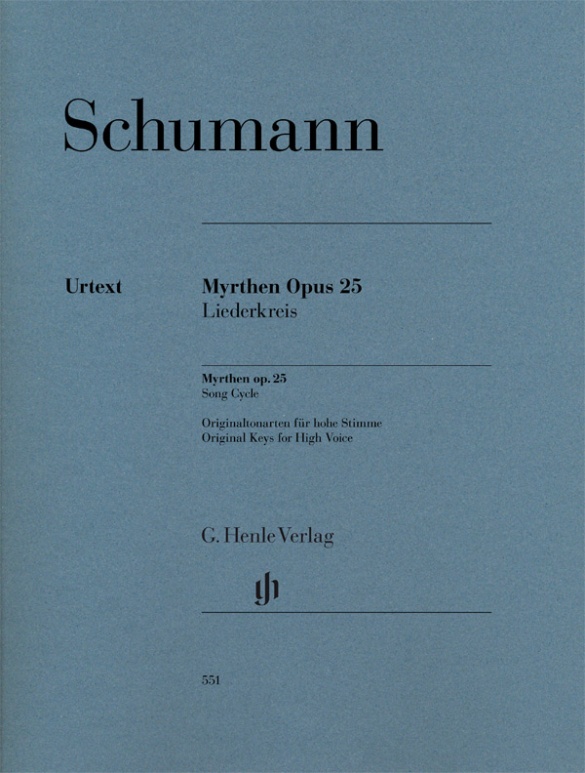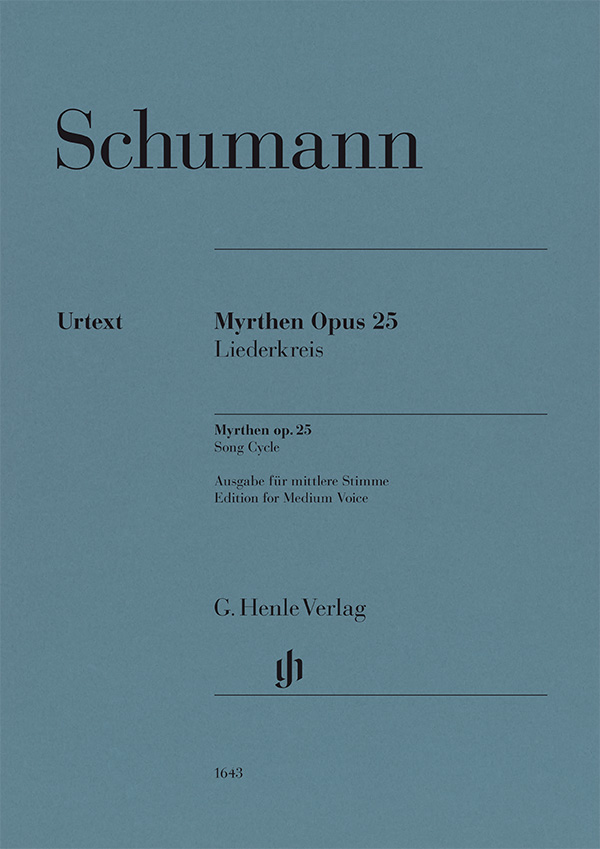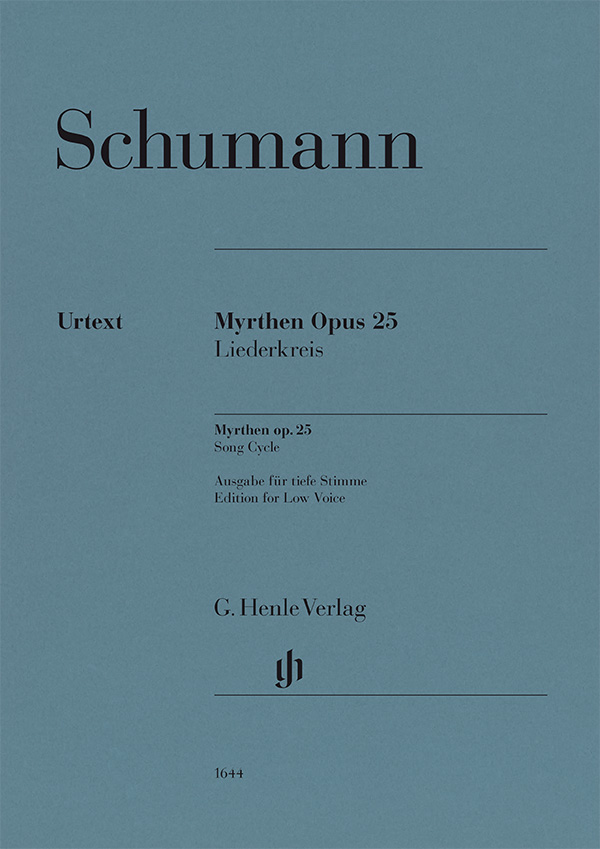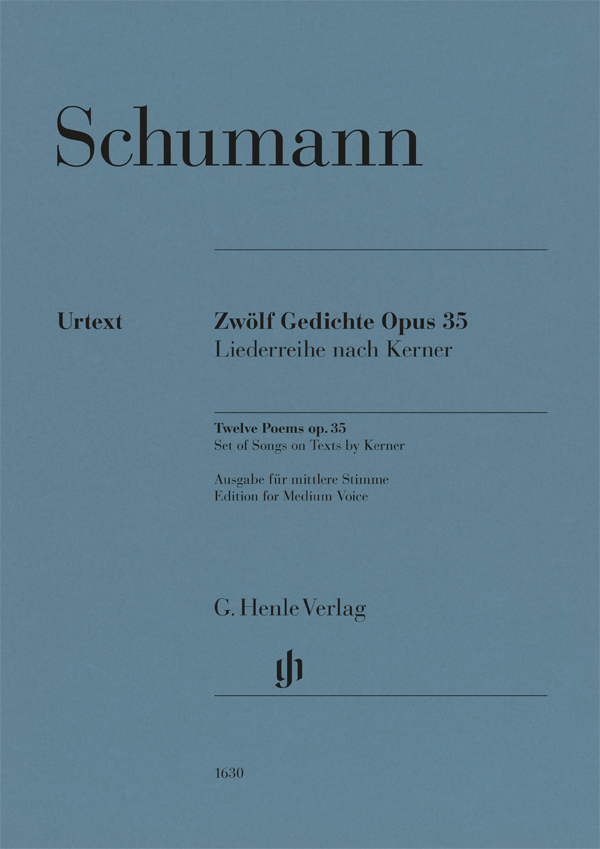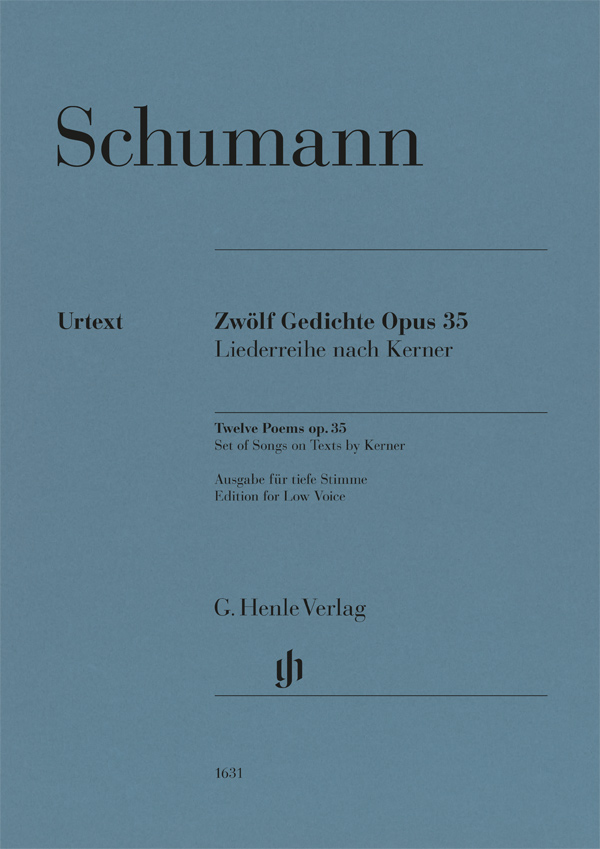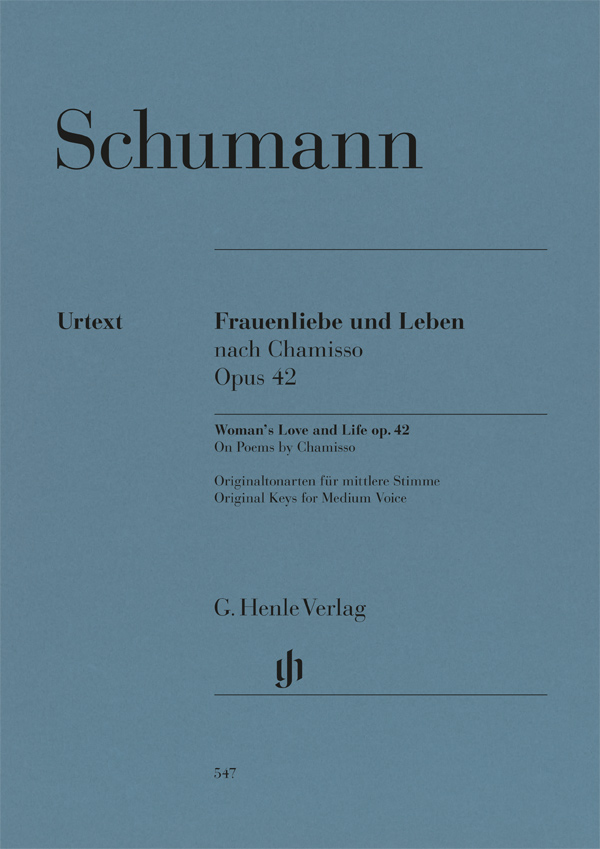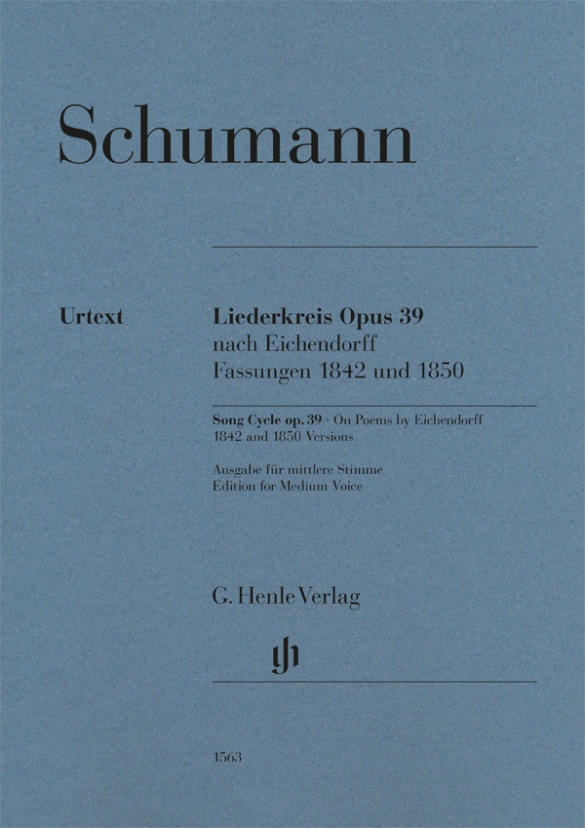

Robert Schumann
Song Cycle op. 39, On Poems by Eichendorff, Versions 1842 and 1850
The Liederkreis op. 39, first published in 1842, remains one of Schumann’s most important song cycles to this day, and not only because of the famous “Mondnacht”. Eight years later, Schumann revised his work for a new edition, also replacing the opening piece in the first edition (“Der frohe Wandersmann”) with the song “In der Fremde”. The Henle Urtext edition offers both versions in their entirety, thereby providing a wonderful opportunity to study Schumann’s later work on the music. The two editions for medium and low voice complement the original version for high voice (HN 550) – and as always with Schumann, in well-planned transpositions by the experienced song accompanist Gerold Huber.
Content/Details
About the Composer
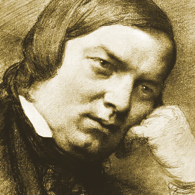
Robert Schumann
Connected with his oeuvre is the term he coined, Poetic Music, with which he strove for a fusion of literature and music, a paradigm particularly seen in his lyric piano pieces prior to 1839. Thereafter he devoted himself to other genres (song, symphony, chamber music, among others).
About the Authors
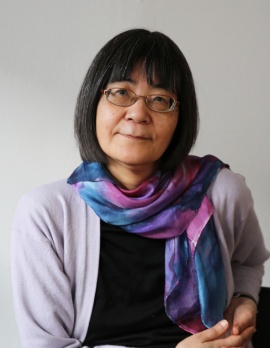
Kazuko Ozawa (Editor)
Kazuko Ozawa, born in 1954 in Mishima, Japan, studied at the Tokyo University of the Arts between 1973 and 1979, doing her MA on Schumann’s Scenes from Faust in the Musicology Department. From 1979 onwards she continued her studies at the University of Bonn, earning her doctorate with a thesis entitled “Quellenstudien zu Robert Schumanns Liedern nach Adelbert von Chamisso”.
She works as a freelance musicologist and is an external editor for the New Robert Schumann Complete Edition.
Product Safety Informations (GPSR)

G. Henle Verlag
Here you can find the information about the manufacturer of the product.G. Henle Verlag e.K.
Forstenrieder Allee 122
81476 München
Germany
info@henle.de
www.henle.com
推荐
autogenerated_cross_selling
本书目其他版本


